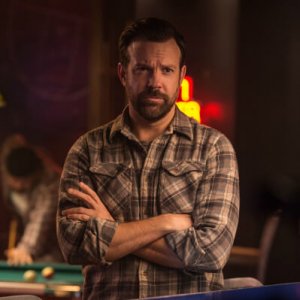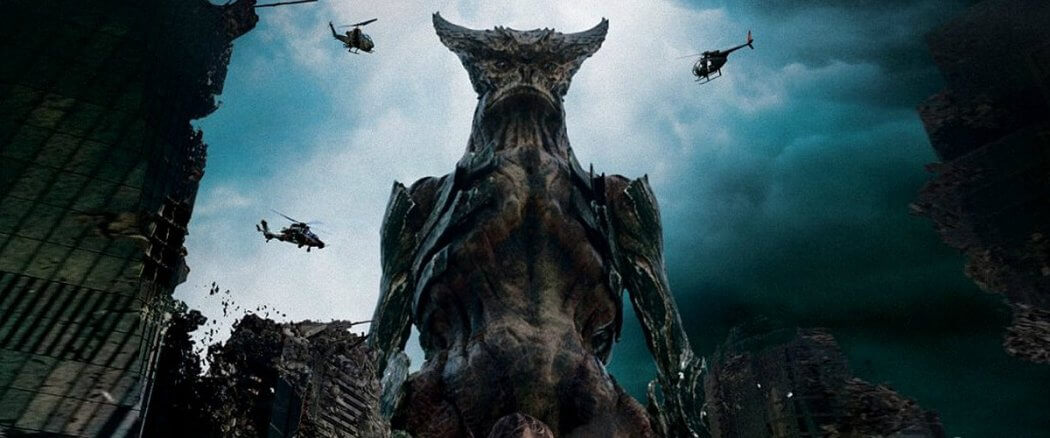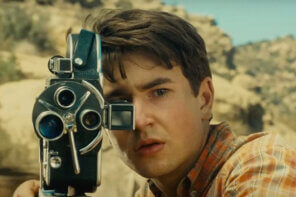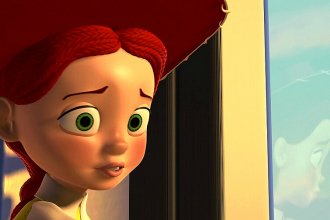I recently had a discussion with the bearded genius, Tim Nelson, about Terrence Malick’s Song to Song. We circled around for an hour trying to get to the heart of the movie’s failures, and the thread we returned to again and again was story. We both felt Malick had abandoned narrative to his own peril, and that other movies with lesser artistic ambitions are often better films because they simply tell a story.
Unfortunately, the reverse is true as well. There are plenty of films with stories that are executed so poorly, they make us appreciate the artistry Malick brings to the table. Truth be told, I’d rather watch Song to Song a hundred more times than the movie I wasted two hours on last Friday night. Colossal boasts a fresh Rotten Tomatoes score and an Oscar-winning actress in Anne Hathaway, but nothing can salvage its ridiculous plot and shape-shifting characters.
Let’s get the pun out of the way up front: Colossal is a colossal failure that proves the critics can be wrong, story isn’t everything, and even the best actors fall apart when they’re handed a lemon.
An Outlandish Premise
Colossal has an outlandish premise that could have worked in better hands. On the surface, this is your typical genre film. There’s a monster on the loose in Seoul, South Korea striking fear into the heart of the city and panic worldwide. It appears every morning at 8:05 AM and disappears shortly after. Gloria (Anne Hathaway) is alarmed by the creature’s appearance, but it doesn’t take much to alarm Gloria these days. She’s an alcoholic kicked to the curb by her New York boyfriend for partying too much and forced to return to her hometown to begin again.
 Gloria shacks up at her now-vacated childhood home and quickly bumps into an old classmate named Oscar who gives her a job at his bar. (Probably not the best place to work for an alcoholic.) Gloria hits it off with Oscar and his two friends who spend their days working and drinking late into the night. Enter the Godzilla-like creature of Seoul to rock their world.
Gloria shacks up at her now-vacated childhood home and quickly bumps into an old classmate named Oscar who gives her a job at his bar. (Probably not the best place to work for an alcoholic.) Gloria hits it off with Oscar and his two friends who spend their days working and drinking late into the night. Enter the Godzilla-like creature of Seoul to rock their world.
But here’s the trailer-revealed twist: the monster is intricately connected to Gloria. In fact, due to some glitch in time and space from the past, the creature only appears when Gloria walks through her old school playground. Interestingly enough, Oscar is connected to these events as well. When he walks through the playground, a robot appears in Seoul next to the monster.
This is a plot brimming with possibilities. How did Oscar and Gloria gain these powers? What will they do with them? Can the connection between their alter-egos be broken? Unfortunately, writer/director Nacho Vigalondo takes the least interesting path through the narrative choices he has at his disposal. The film turns into a bizarre relationship drama where the creatures of Seoul become a mere backdrop for two adults fighting through their feelings on a playground in New Jersey.
Good Characters Gone Bad
Anne Hathaway has proven herself as an actress time and again. Her “I Dreamed a Dream” from Les Miserable is still some of the best acting ever put to film. But she’s also capable of less flashy, though no less effective performances, like in 2008’s Rachel Getting Married. Her turn in Colossal feels quite similar to the latter, at least for a while. Like Rachel, Gloria is on a path of destruction. She can’t turn down a drink and it’s turning her life upside down.
Oscar, on the other hand, is a good-natured fellow who meets Gloria when she needs it most. Jason Sudeikis brings the perfect everyman charm to his role. His range is suspect, but he can play a wise-cracking gentleman with the best of them.
These are the characters we settle in with, and for about a half hour everything is headed in the right direction. Then, it all takes a bizarre turn. I’m not talking about the arrival of the monster. That works too. I’m talking about the out-of-nowhere role reversal of these characters that takes place without any warning whatsoever. It turns out that all Gloria needed to stop her alcoholism was to say no to alcohol. One decision to drink water instead of beer cures her for good. Who knew? Meanwhile, Oscar inexplicably inherits Gloria’s former problem and turns into an insufferable jerk. With a beer permanently in hand, he lashes out at everyone around him and threatens to kill innocent people in Seoul if Gloria refuses to love him. Really?
 This begins the main ordeal of the movie — Oscar threatening to use his robot powers to destroy Seoul and Gloria trying to stop him. Meanwhile, their two friends Joel (Austin Stowell) and Garth (Tim Blake Nelson) prefer to watch these events unfold on live TV rather than driving a mile to the nearby playground to actually do something.
This begins the main ordeal of the movie — Oscar threatening to use his robot powers to destroy Seoul and Gloria trying to stop him. Meanwhile, their two friends Joel (Austin Stowell) and Garth (Tim Blake Nelson) prefer to watch these events unfold on live TV rather than driving a mile to the nearby playground to actually do something.
The writing and directing that compose this bulk of the film are excruciating. Again and again, we return to Seoul and watch terrified Koreans running from the robot and monster that keep appearing in their city only to cut back to the suburbs to watch two privileged white people duke it out on the playground. The whole thing started to make me queasy. I couldn’t stop thinking about all the energy hundreds of Korean extras were expending for a silly story of unrequited love.
I won’t give away the ending, but needless to say redemptive violence wins the day — it’s the last nail in the coffin of this cinematic train wreck.
Art Matters
I once wrote a scathing review of Firewall in college where I lashed out at Harrison Ford and everyone involved in the film. I whipped out my best Indiana Jones reference, slapped the movie with an F, and submitted it to the editor of our campus newspaper. A few days later, I received an e-mail from a teacher. She was a soft-spoken woman, so the e-mail was gracious and polite, and in it she asked whether it was appropriate for Christians to mock and ridicule. Her gentle question haunts me still. Ephesians 4:29 says, “Don’t let any unwholesome talk come out of your mouth, but only that which is helpful for building others up according to their needs.”
I’ll admit, bad movies frustrate me. I couldn’t wait for Colossal to end. I spent an inordinate amount of time studying the walls of my theater — anything to keep my eyes off what was happening on screen. When the credits finally came, I bolted for the door. Why? Because art matters. When we create, we’re imaging our Creator and that carries with it a grave responsibility. Film has the potential to speak truth in powerful ways; I’ve seen it change my heart and the lives of those around me.
I won’t apologize for critiquing bad art, but I do think my college professor was right. There’s a difference between critiquing the art and critiquing the artist. No one sets out to make a bad movie. The creator of Colossal spent years planning and executing a story. In my eyes, he got it wrong. But a glance at Rotten Tomatoes proves that others disagree. Either way, I wish Nacho Vigalondo well. I hope he finds another story to tell and one day knocks it out of the park. As the explorer in The Last Crusade says when he puts the famous fedora on Indiana Jones’ head, “You lost today, kid. But that doesn’t mean you have to like it.”





